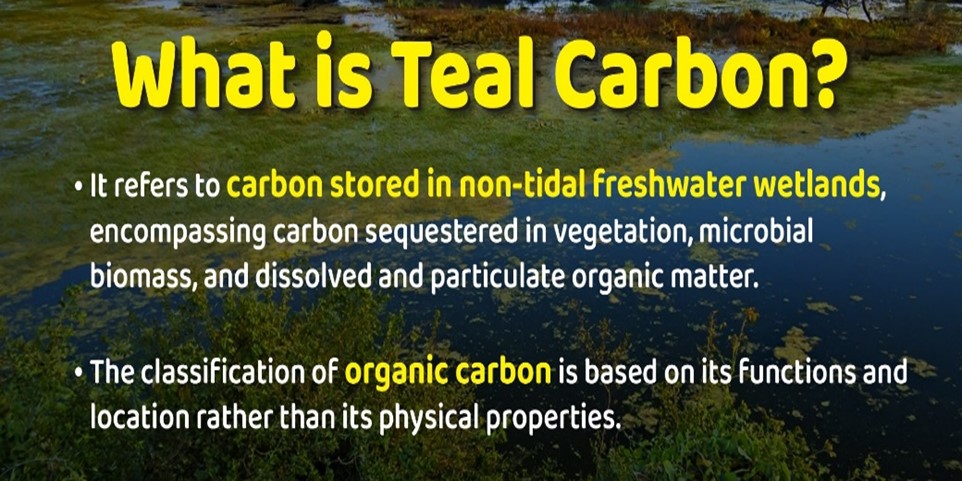PREVIOUS
India’s first study on ‘teal carbon’
September 18 , 2024
469 days
819
0
- India’s first study on ‘teal carbon’ was undertaken at the Keoladeo National Park (KNP) in Rajasthan’s Bharatpur district.
- The pilot project had sought to develop holistic nature-based solutions to address climate change.
- Teal carbon refers to carbon stored in the non-tidal freshwater wetlands, encompassing carbon sequestered in vegetation, microbial biomass, and the dissolved and particulate organic matter.
- ‘Teal carbon’ being a colour-based terminology reflects the classification of the organic carbon based on its functions and location rather than its physical properties.
- As opposed to teal carbon, black and brown carbon are primarily produced by incomplete combustion of organic matter from sources such as wild fires, fossil fuel combustion, and industrial activities.

Leave a Reply
Your Comment is awaiting moderation.


